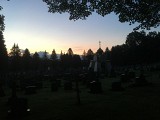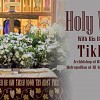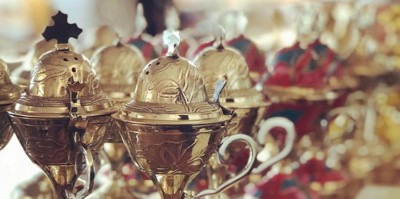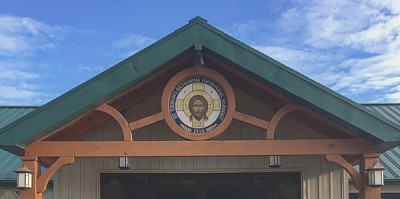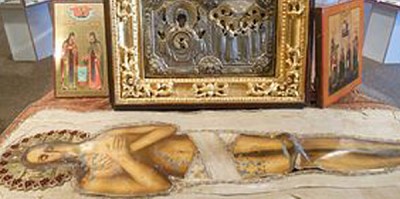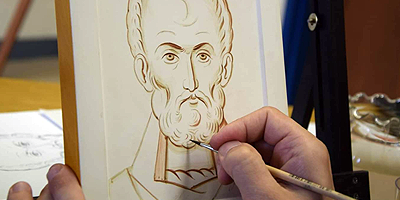Fr John Beck on sickness, sin and suffering
Fr John Beck wrote this article after a massive earthquake devastated Haiti in 2009. This slightly edited version remains relevant today where the 'catastrophe' is worldwide.
For many of us, this kind of disaster raises once more the problem of “theodicy”: if God is both all-powerful and wholly good, how can he allow evil to exist? Put another way, how can we explain the ever-present phenomenon of innocent suffering?
If God is both omnipotent and benevolent, then the only logical answer to the question is that such tragedy does indeed represent divine retribution, punishment for sin and rebellion against God’s will (thus there is no such thing as truly “innocent” suffering). In light of Scripture and our personal experience, however, this kind of logical deduction is simply untenable. God certainly judges us in light of our sinfulness, as well as of our righteousness and works of love. That judgment, however, does not result in God inflicting physical and emotional suffering on entire nations or peoples: not in Haiti, not in Indonesia, nor anywhere else in the world. Until we face the Last Judgment, divine “punishment” comes merely in the form of God letting us reap the consequences of our sin, letting us “stew in our own juice.” There is unquestionably a divine pedagogy to be found in many instances of suffering. We must not believe, however, that the God whose very essence is love, who surrendered his own life to suffering and death in order to rescue us from the consequences of sin and death, is a vindictive God whose “righteousness” trumps his mercy and compassion.
Most people, including many Orthodox Christians, have had their vision of God shaped by a Western theology that begins with philosophical abstractions. Their notion of God begins with the image of One who is omniscient and omnipotent, a God of Justice who demands justice from us under threat of punishment if we do not conform to his will, his law.
From an Orthodox perspective, however, we need to begin not with the image of “God on high,” but with the more powerful and more poignant image of the Cross. That image does not explain in rational terms the mystery of innocent suffering; nothing in this life does or can (that is why it is “suffering” and not merely pain). But it does tell us what is essential: that “if I make my bed in Sheol, Thou art there!” (Ps. 38/39). All we can finally say about tragedies such as the one in Haiti, or the tsunami of a couple of years ago, or the death of a little child on the highway, is that Christ is present with us, to share totally our loss, our grief and our pain. As the Paschal icon so dramatically and beautifully depicts it, Christ descends again and again into the depths of our hell, to reach out his hand to grasp ours, and to lift us from the darkness into his radiant light. For all of those trapped under the ruins, Christ is there, sharing their agony to the bitter end. He is with those who grieve the loss of loved ones, bearing their sorrow and anguish as well. As the service of Great Compline declares, he is “God with us!” Not in the first place as a God of righteousness and judgment, but as the God of boundless love, who remains, in Pascal’s words, “in agony until the end of the world.”
If we begin with the Cross, rather than with some abstract notion of divine omnipotence, then we can see that God and we ourselves are still engaged in a massive cosmic struggle. The Cross and Resurrection ended Satan’s sovereignty over the world and over our individual destinies. Yet the struggle continues, just as sin continues, as natural disasters continue, and will do so until Christ comes again in glory. Once more we need to remind ourselves: there is profound significance in the fact that at the Empty Tomb the angel speaks of Christ not as “the Risen One,” but as “the Crucified One” (Matt & Mk). The risen and glorified Christ remains “the Crucified One” in the life and experience of every one who seeks him...
~ From 'Reflections in Christ', 01/02/2010
|
175 St. Tikhon's Road
Waymart, PA 18472
Sun
23FebLast Judgment
9:10 Hours and Divine Liturgy
4:30 Vespers & MatinsMon
24FebMeat Fast
6:00 Midnight Office, Hours, & Liturgy
4:30 Vespers & MatinsTue
25FebMeat Fast
6:00 Midnight Office, Hours, & Liturgy
4:30 Vespers & Great Compline

